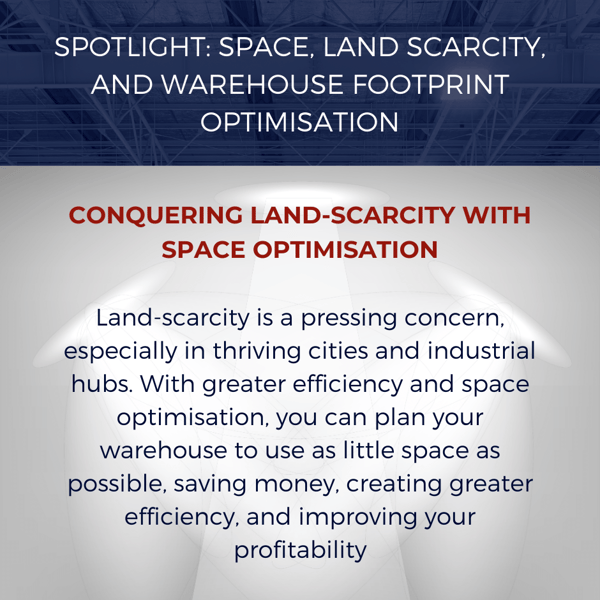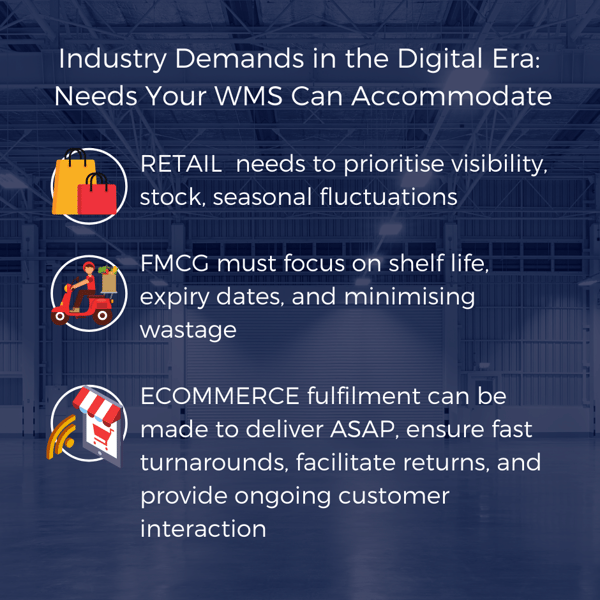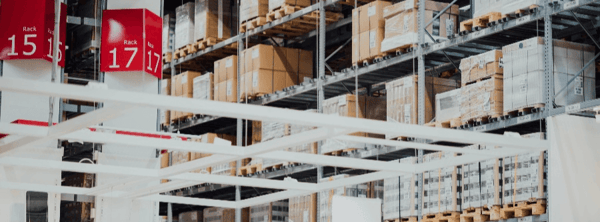12 Reasons To Add a WMS To Your Warehouse Solution


A WMS will enhance your business' operations and boost efficiency and accuracy throughout your warehouse. The desired outcome of interfacing a WMS with your existing ERP is that your automated business processes and your Warehouse Management processes work in tandem to assist your sales, customer service, operations, and finance in making better, more strategic decisions.
These are the capabilities, benefits, and reassurances a WMS will provide:
1. WMS Capabilities
Your WMS will optimise daily warehouse operations, enhancing efficiency and accuracy and maximising your customer satisfaction through several key functions:
- Boosting your turnaround and throughput
- Reducing or eliminating mispicks by aiding your accuracy
- Providing real-time visibility into inventory, a WMS will reduce stock-outs and boost customer service
- create more efficient pick paths, increasing inventory turns and reducing inventory carrying costs
- streamline inbound, put-away, and picking, among other processes
- improve productivity by reducing paper-based operations
- implement system-directed tasking that assigns workers based on the three P’s (permission, priority, and proximity) to reduce order cycle times and errors
When we look at the benefits of a WMS in your warehouse, distribution center, supply chain, or business, we generally look at the tangible, measurable impact that an implementation will have.
There are far more benefits that meet the eye, however, and the ongoing improvements and opportunities seeded by your WMS can change an implementation from simply “the cost of doing business” to a truly worthwhile investment.
Simultaneously, trying to leverage all the benefits of a WMS without sufficient training or support will create uncoordinated and counter-productive chaos.
Space saving in areas of land scarcity is also a great concern, and a WMS will help you to plan and design your warehouse in the most efficient, space-saving way.

2. Strategic WMS partner guidance
Successful WMS implementations tend to be led by specialised teams, rather than IT departments alone. These business units will be guided by your vendor to:
- Jointly determine how the system needs to work for them
- Determine the impact on their operations
- Be carefully selected for certain skills
- Have excellent training to ensure maximum leverage and ROI
The degree of sophistication in supply chain management and optimisation technologies has advanced: supply chain solution components are now more integrated and more interoperable than ever before, dramatically expanding the opportunities to improve supply chain performance.
The scale of WMS technology deployments has grown along with the complexity of solution implementation.
A WMS will ensure your system is supported by champions, follows best practices, and hits the ground running to get immediate benefits.
3. Measurable long term benefits
Whatever your budget is, you will be investing in a future-proof system that yields rich capabilities and gives you a dynamic warehouse in the long term.
A WMS adds a layer of security to your operations, additional warehouse management support, access to specialised industry and domain knowledge, adding clear investment value.
4. Maximised reporting capabilities
Reporting proves its value as it will allow you to see what is happening on the warehouse floor as it happens - thus best-in-class reporting will provide a "command and control" view of all warehouse activities, meaning that problems can be identified and addressed immediately.
Actionable insights allow you to make better decisions with dashboards, analytics, alerts, and more.
Your WMS will provide the ability to drill into details and identify actions to address challenges rapidly and resolve them.
5. Flexibility and Integration
What does flexibility really mean?
"Flexibility means that you choose an existing system capable of meeting your business and operation needs, as opposed to trying to reengineer your process to meet the systems' needs."
- Hatem Tantawy
Supply Chain Junction
Senior Business Consultant, Middle East
By carefully evaluating the standard features vs. customisation options of potential WMSs, you can choose one that is capable of customisation but requires the bare minimum of it. This will help to minimise implementation costs and and avoid performance discrepancies that would not be a problem under original embedded features.
While a WMS is the first core step towards management & control tools, it is not the last step, so making sure that the integration capabilities for multiple tools or third party systems are present will ensure a long and successful partnership.
Ask if your chosen WMS is hardware / system agnostic so that it can integrate with existing ERPs, HW, MHE, WES, WCS, or other 3rd party systems without any complications or conflict, taking first core step to better control throughout your supply chain.
Giving yourself this integration capability means that other tools can be added later, changed, or connected as you expand or diversify to allow for technologies such as automation. You need to have a powerful and flexible system that can easily embrace and integrate with these possible future functionalities.
"You want to avoid getting locked in by either inflexible vendors or technology, as this can lead to later integration challenges if there is a conflict of interest," says Tantawy.
6. Actionable insights for business solutions
There are many individual things you need to do well in order for your supply chain to become a competitive weapon, but ultimately it lies in combining "information" (the communications or receptions of knowledge) and "intelligence" (the ability to apply knowledge to manipulate one's environment as measured by objective criteria). This combination is what is commonly referred to as supply chain intelligence.
Supply chain professionals can leverage the power of this insight to unlock information they previously could not access, giving their companies a tremendous competitive advantage.
Transparent and accessible intelligence can help an operation look both forward and backwards, to guide better future decisions. Management can access and use the data to identify trends, conduct period-over-period analyses, and identify action steps.
Having access to this information is also essential for forecasting future shifts, such as seasonal stock fluctuations. Don't have this capability? GET IT!
7. Connection and communication throughout
Today’s market is highly competitive. With the growth of ecommerce andomnichannel retail, businesses have an onslaught of inventory tracking requirements - meaning that communication needs to spread further, be monitored simply, and reach all involved parties faster than ever before. In the GCC for example, some 70% of retail businesses still function on COD terms - simply put, this means that if you cannot fulfil your customers' order when you promise, they will take their business elsewhere.
A productive and profitable supply chain isn’t just about moving boxes - it’s also about keeping the communication moving.
The key to world-class customer service lies in bridging the gaps in communication throughout your supply chain, and a WMS will offer you the perfect way to achieve this.
Consider how important flexibility is in a system that needs to be able to account for industry-specific priorities without extensive customisation (although customisation must be available):

8. Partner area, experience, expertise
Your partner's experience provides an edge - proven vendor industry experience helps ensure that the functionality needed is available, along with appropriate flexibility or solutions for each individual marketplace - consider how different winter retail seasons might look in the Middle Eastversus Europe!
Additionally, having a WMS partner in your location means access to personal support and solutions when you need it most.
Their insights in adding an industry-specific, location-appropriate WMS to your ERP will guarantee marketplace presence and power.
9. Scalability
While a WMS will improve warehouse operations almost from the start, the real value tends to accrue over time, as organizations continually revise their processes - this requires a solid upgrade path.
Your WMS will offer further solutions and benefits as and when your business develops and grows to ensure that you can continue to capitalise on this investment without the need for another change down the line.
10. Product longevity
Along with technology that is simultaneously reliable and robust, a successful WMS partnership often hinges on the professionalism and sustainability of the provider, as well as the relationship between partner and provider (as well as you).
Consider how responsive and engaged the company is, and consider other customers' testimonials when determining if they are the right company to find your optimal solution, and see you through challenges.
11. Training
Thorough training is key - even the best WMS cannot work without being managed!
Staff training on your Warehouse Management Systems / Order Management Systems from your vendor should cover all actions and tech functions around the warehouse processes, broken up by area.
Your WMS partners will allow you to:
- save valuable time by explaining the correct procedures and processes
- reduce costs consulting outside experts
- maximise your system ASAP and see a rapid ROI
12. Tech-friendly and future-proof
Software has a defined life cycle - usually no more than five years - and a good WMS will not need to be updated as features are automatically upgraded and new ones are added. Your WMS provider will keep you fully informed on these new features, to help future-proofyour business.
To gain the most benefit from a WMS, establish a continuous improvement team who can identify and deploy ways to further leverage the system’s features. To truly gain the most out of your partnership with your WMS provider, lean on them as much as you can.
Our job is to be the warehouse experts, while your job is to be the expert in your industry - whatever that may be.
Contact us for a health check on your process and business needs with a free gap analysis by one of our expert supply chain consultants:
Or find out more about how you can get started with our WMS Implementation Guide:
TAGS
- WMS (51)
- Warehouse Best Practice (46)
- Implementing a WMS (29)
- Managing your warehouse (19)
- Omni Channel (18)
- eCommerce (18)
- Blog (16)
- Supply Chain Best Practice (16)
- Customer Journey (9)
- Mid-Level (8)
- Warehouse optimisation (7)
- General Tips (5)
- Industry General (5)
- Information (5)
- Trends (5)
- managing your Supply Chain (5)
- saudi arabia (5)
- Press Release (4)
- smart warehouse (4)
- 3PL (3)
- News (3)
- ERP (2)
- Entry-level (2)
- ROI (2)
- Case Study (1)
- OMS (1)
- Picking (1)
- Solution-Specific (1)
- Transport Management System (1)
Take A Look At The Results Of A Successful WMS Implementation.
See how Tarsus Distribution, in collaboration with SCJ boost overall efficiency by 60%





